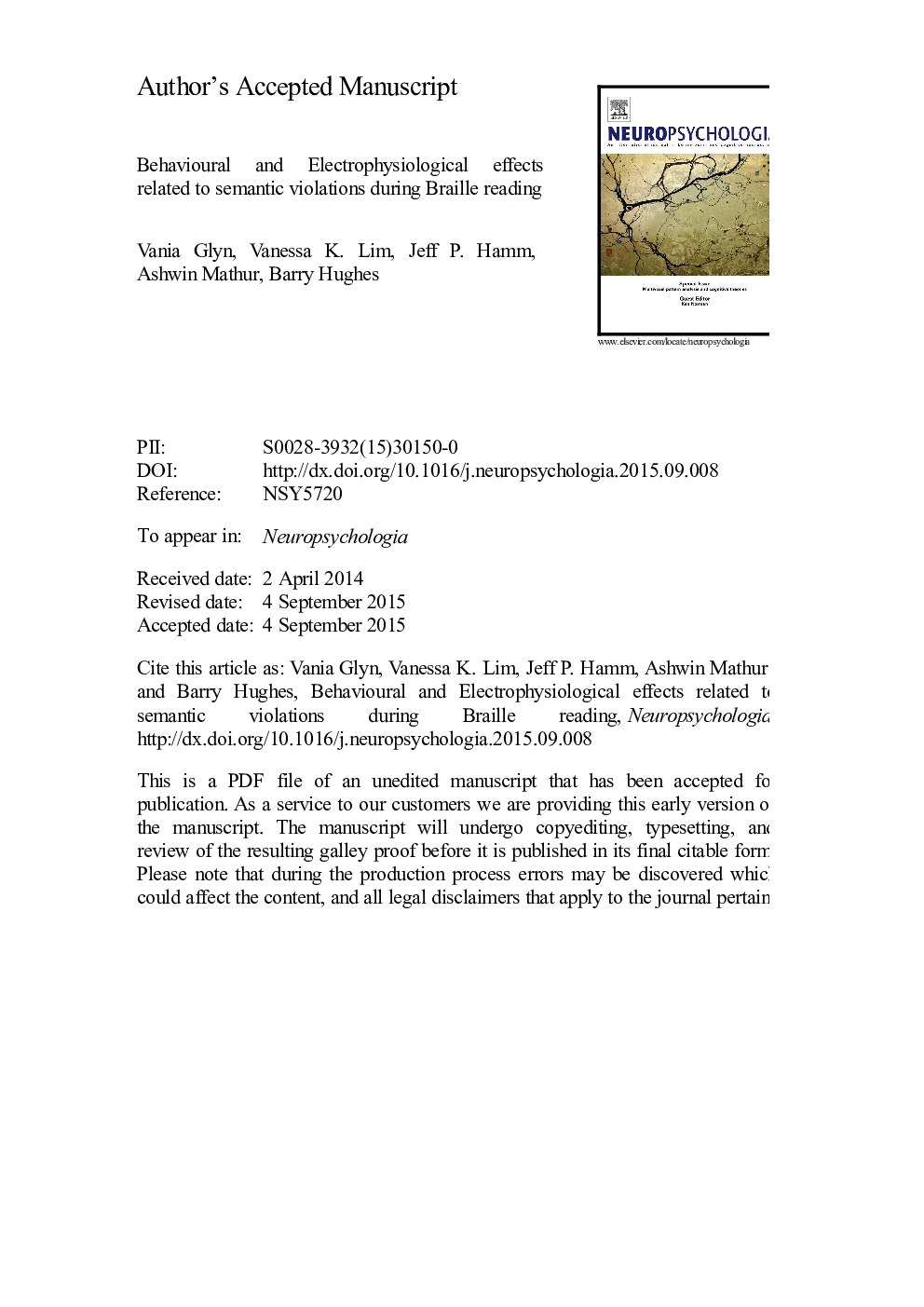| Article ID | Journal | Published Year | Pages | File Type |
|---|---|---|---|---|
| 7319809 | Neuropsychologia | 2015 | 40 Pages |
Abstract
This study investigated the potential to detect event related potentials (ERPs) occurring in response to a specific task in braille reading. This would expand current methodologies for studying the cognitive processes underlying braille reading. An N400 effect paradigm was utilised, whereby proficient blind braille readers read congruent- and incongruent-ending braille sentences. Kinematic and electroencephalography (EEG) data were obtained simultaneously and synchronised. The ERPs differed between the incongruent and congruent sentences in a manner consistent with the N400 effect found with a previous sighted reading paradigm, demonstrating that ERPs can be obtained during braille reading. The frequency of finger reversals and the degree of intermittency in the finger velocity were significantly higher when reading incongruent versus congruent sentence endings. Both reversals and the potential N400 effect may reflect processes involved in semantic unification. These findings have significant implications for the modelling of braille reading. The refinement of the technique will enable other ERPs to be identified and related to behavioural responses, to further our understanding of the braille reading process.
Related Topics
Life Sciences
Neuroscience
Behavioral Neuroscience
Authors
Vania Glyn, Vanessa K. Lim, Jeff P. Hamm, Ashwin Mathur, Barry Hughes,
